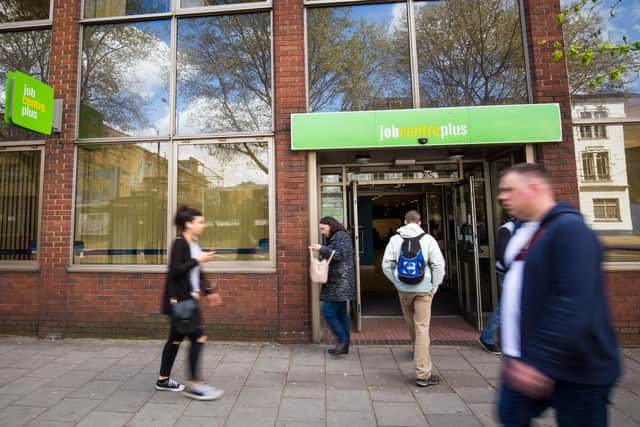'Mixed signals' in Scots hiring activity amid fears around Covid impact
and live on Freeview channel 276
Permanent placements rose at the steepest pace for three months, amid reports of strong demand for staff, with the index for that metric coming in at 63.9, up from 60.2 in November.
However, pandemic-related concerns hampered the amount of work available for short-term staff, with the rate of increase in temporary billings easing to the weakest since the current period of expansion began in September 2020.


Advertisement
Hide AdAdvertisement
Hide AdThat index was found to be 52.3 in December, compared to 59.7 in the previous month. The lender added that candidate availability fell steeply again, and pay pressures remained “intense”.
RBS chief economist Sebastian Burnside said the figures pointed to some “mixed signals” for the Scottish labour market. “Permanent staff appointments rose at the steepest rate for three months, but the upturn in temporary billings eased significantly from November, with the rate of increase the weakest in the current 16-month sequence of growth.
“Following a survey-record upturn in hiring activity during the third quarter, the data suggests a cooling of momentum at the end of 2021. Nonetheless, recruitment activity remains robust by historical standards and demand for staff remains marked.
"Although in a strong position at the turn of the year, the possibility of stricter lockdown measures is a key concern for the labour market, and we are already seeing hints that the Omicron variant has weighed on hiring as we enter 2022.”
Advertisement
Hide AdAdvertisement
Hide AdIt comes after RBS flagged how last month, growth in Scotland’s private sector was restrained by Omicron concerns.
A message from the Editor:
Thank you for reading this article. We're more reliant on your support than ever as the shift in consumer habits brought about by coronavirus impacts our advertisers.
If you haven't already, please consider supporting our trusted, fact-checked journalism by taking out a digital subscription.
Comment Guidelines
National World encourages reader discussion on our stories. User feedback, insights and back-and-forth exchanges add a rich layer of context to reporting. Please review our Community Guidelines before commenting.
